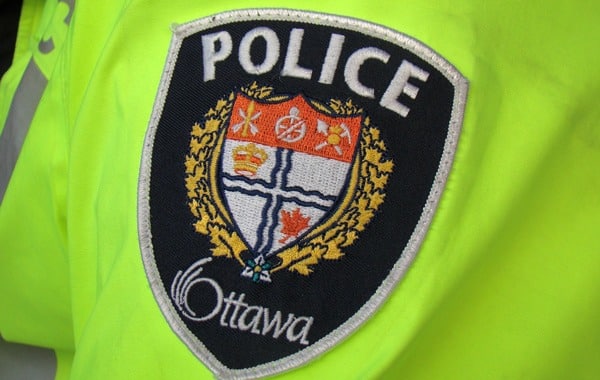What’s Included (and What Isn’t) in a Police Check in Ottawa
Remember Celine Dion’s 2002 hit, “Rain, Tax (It’s Inevitable)”? She should have included criminal record checks as one of those inevitabilities. This process is pervasive in many aspects of Canadian life.
A criminal record check is a major part of the background check organizations conduct on prospective candidates for employment, volunteering, and business contracting. A police record search seeks to uncover whether the candidate has any criminal convictions to their name.
If you live in Ottawa and you’d like to discover what the police record search or background check can reveal about you — look no further. We’ll let you know what to expect (and what not to expect) from the police records search.
[apply_for_a_record_check]

Criminal Record Check Types in Ottawa
The local police in Ottawa conduct three types of criminal or police record searches:
- Criminal record check
- Criminal record and judicial matters check
- Vulnerable sector check
How to Get an Ottawa Police Check – Locations and More
The first step in accessing your police records is applying physically or online. You can get the form from the Ottawa police service in person or online, or you can use an accredited online Criminal Record Check company such as Instant Record Check.
If you are applying in person, bring your completed application form and two pieces of government-issued identification documents, with at least one showing proof of residence in Ottawa. If you’re undergoing a vulnerable sector check, you may be required to submit more information such as an official letter from the organization. A physical submission could take 7-10 business days. Online submission through Instant Record Check will take 24 hours or less.

Information Available in Police Checks in Ottawa
The information included in a criminal record check depends on the type of search being conducted. The three investigations carry different circumstances for their usage.
We’ll look at what information is and is not obtainable under each of the record checks.
Criminal Record Checks
This search occurs during a job or volunteer application process. Immigrants into Canada and self-employed individuals or business people bidding for contracts also must undergo this police records search.
The employer or volunteer organization must provide an official letter about this procedure to the applicants. If required, some record checks also use fingerprints for identity purposes. These checks are also called certified criminal record checks and are taken to confirm the identity of the applicant and whether there is a criminal history.
Results obtainable under this search include:
Convictions from the Ottawa police service database or the Canada Police Information Centre (CPIC)
Convictions that occurred when the applicant was under 18 years of age
The search results do not include:
Pardoned convictions – Pardoned convictions refer to past criminal offenses that have been officially forgiven or pardoned by a government or legal authority. Once a conviction has been pardoned, it is no longer considered a part of an individual’s criminal record and will not appear in police record checks or criminal record checks. Pardons can provide individuals with a fresh start and help them move on from past mistakes without the burden of a criminal record hindering their opportunities in employment, education, or other aspects of their life.
Absolute and conditional discharges – Absolute and conditional discharges are legal terms used in the Canadian criminal justice system to describe a sentence given to an offender found guilty of a crime. An absolute discharge means that the offender is found guilty but does not receive a criminal record, and the offense will not appear on a police record check or criminal record check. A conditional discharge means that the offender must comply with certain conditions, such as completing community service or attending counseling. If these conditions are met, they will also not receive a criminal record. However, if the conditions are not met, the offender may be sentenced again and receive criminal records. In some cases, vulnerable sector checks may still reveal absolute or conditional discharges, but these types of sentences are generally considered more favorable outcomes than receiving a criminal record.
Outstanding charges and warrants – Outstanding charges and warrants refer to criminal charges that have been issued against an individual but have not been resolved. This can occur when the individual has not appeared in court or a warrant has been issued for arrest. Outstanding charges and warrants will appear on a criminal record check, affecting an individual’s ability to obtain employment, travel, or access other opportunities. Local police services maintain local databases of outstanding charges and warrants. Individuals who believe they may have outstanding charges or warrants against them can contact their local police service to inquire. It is important to promptly address outstanding charges and warrants to avoid further legal consequences.
A vulnerable sector query for information about the applicant’s possible involvement in sexual offenses – A vulnerable sector query is a type of criminal record check conducted by a local police service to identify individuals at risk of exploitation. It involves searching for information about the applicant’s potential involvement in sexual offenses and is required for those working with vulnerable populations. This check helps inform hiring decisions and ensures public safety.
Court orders – Court orders are legal directives issued by a court that requires an individual to take a specific action or refrain from certain behavior. Court orders can be issued for various reasons, including criminal charges, civil disputes, and family matters. A police records check, also known as a judicial matters check, can reveal whether an individual has any court orders against them. This information is important for various purposes, such as employment screening or student placement. Employers or educational institutions may require individuals to disclose any court orders, and failure to do so can result in consequences. It is important to comply with court orders and ensure necessary checks are conducted to avoid legal or other complications.
Incidents involving mental health disorders – Incidents involving mental health disorders refer to situations where an individual’s mental health may have played a role in a legal matter, such as a criminal offense. This can include incidents where an individual’s mental health was a factor in summary convictions or where outstanding entries exist in a legal system. Individuals with mental health disorders must disclose this information during legal proceedings, as it can impact the case outcome. Some online applications may also ask about incidents involving mental health disorders, particularly for positions with vulnerable populations. Being honest about any incidents involving mental health disorders is imperative, as withholding this information can have legal or employment-related consequences.
Dismissed and withdrawn charges for criminal offences – Dismissed and withdrawn charges for criminal offences refer to situations where charges have been dropped or withdrawn against a person. These charges can still appear on background checks, potentially affecting an individual’s ability to obtain employment or other opportunities. However, individuals may be eligible for a record suspension, formerly known as a pardon, which removes certain criminal records from public view. This can help individuals move forward with their lives and access opportunities they may have otherwise been excluded from. Everyone must understand their rights and options regarding dismissed and withdrawn charges and consider obtaining a record suspension if eligible.
Criminal Record and Judicial Matters Checks
Employment and volunteer applicants also go through this search. It investigates convictions and judicial records obtainable from the Ottawa police database and other relevant databases.
The search results under this record check include:
Convictions from the Ottawa police service database or the CPIS
Convictions that occurred when the applicant was under 18 years of age
Outstanding charges, warrants, judicial orders, peace bonds, probation, and prohibition orders
Absolute (for one year) and conditional discharges (for three years)
Information not released as a result of this search includes:
Criminal record suspensions
A vulnerable sector query for information about the applicant’s possible involvement in sexual offences
Incidents involving mental health disorders
Withdrawn and dismissed charges for criminal offences
Vulnerable Sector Check
Applicants looking for career or volunteer opportunities working with the vulnerable sector are assessed in this investigation. These positions usually involve authority or trust. They also deal with members of vulnerable populations, including children, elderly people, and people with disabilities.
Only the Ottawa police service can conduct this procedure. People under 18 years of age cannot undergo this investigation in Canada.
This police record search will reveal the following information:
Convictions from the Ottawa police service database or the CPIS
Convictions that occurred when the applicant was under 18 years of age
Outstanding warrants, charges, judicial orders, peace bonds, probation, and prohibition orders
Absolute (for one year) and conditional discharges (for three years)
Criminal record suspensions, including those for sexual offences
Incidents involving mental health disorders
Withdrawn and dismissed charges for criminal offences
Call Instant Record Check Today
Now that you know what information will be released about you in a criminal record check in Ottawa, get it done with Instant Record Check today. Their experience in this area will ensure you have no difficulties getting your results.
[apply_for_a_record_check]
Featured Image: Rawpixel








